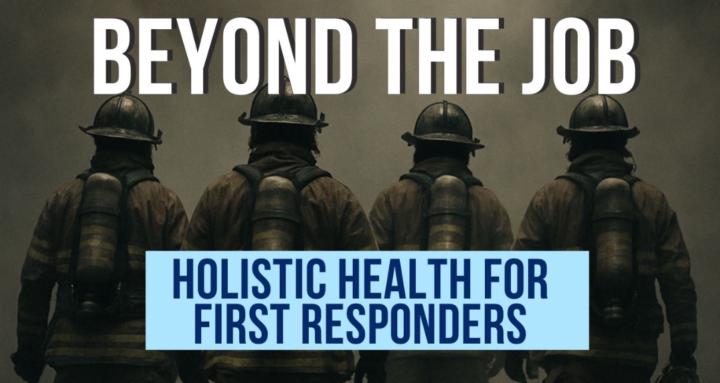
Write something
Pinned
Don’t Miss Out – Start Using the Skool App Today and Live Longer!
Hey Everyone, We’ve built something incredible for you inside our community on the Skool app, and I want to make sure you’re taking full advantage of everything it has to offer. Why should you download the Skool app? You’re already part of our Black Helmet Wellness Society, but here’s why using the Skool app will make it even more valuable: Instant access to new content: Get notified about new posts, updates, and exclusive courses as soon as they’re released. Stay ahead with the latest on stress management, sleep optimization, and fitness programs. Community support on the go: Engage with your fellow first responders from anywhere. Share your progress, ask questions, and learn from others in real time. Daily motivation: Receive daily check-ins and prompts to help you stay consistent and accountable. It’s like having your wellness coach in your pocket! Easy navigation: Whether it’s accessing resources, completing a course, or joining discussions, everything is simple and organized right in the app. How to get started if you haven't yet: Download the Skool app from the App Store or Google Play. Log in with your existing account, and you’ll have immediate access to all the content you’re already a part of. Explore the community, engage with posts, and start getting even more out of your membership. If you’ve already downloaded the app, make sure you’re logging in regularly to stay connected, get the latest updates, and take full advantage of the resources available to you. I’m here to help if you have any questions about using the app or accessing your content. Looking forward to seeing you more active in the community! John Kelly Co-Founder, Black Helmet Wellness Society

Every Step You Need To Live Past 57
https://youtu.be/iEKHXSirf4U?si=o8HlJAiyy9e_uZ8p
Thanks for having me
Hey everyone ~ I'm Adam, I'm from Upstate, NY. I have served as a firefighter/EMS when I was younger. About 6 years ago, I had a heart surgery, but when I was in the firehouse, I had no idea that I had a heart problem. Since that surgery, I went through a staggering amount of PTSD and other mental health challenges. I reached out to NY psych, and that didn't go well at all. I did get to healing and defusing much of the PTSD and challenges related to it. In doing so, we started a private foundation ~ Supporting Our Heroes Private Foundation, originally as an initiative, then we incorporated and became a 501(c)(3) soon after. We went on to start a public nonprofit as well, giving us the community options. We're hoping to create a network with the operational organizations that are out there helping first responders, in a way that connects them into a web, so that those seeking help can always get to the help available to them. I believe if you have the courage to serve, help should be available for you as well. Thank you for having me ~ & ~ thank you all for your service to this country and to your local communities. I honestly believe that the best of humanity serves in Emergency Services & the military. We love you all Adam K SoHi
3
0
Creatine dosing
Hi everyone, I've been researching creating and I'm starting to take a daily dose of 5g twice a day, (just started yesterday). I'm a retired firefighter, 60 y/o and in pretty good shape but seeing a reduction in strength. I've heard to high dose for 3 to 5 days what are your thoughts? Roger
1-24 of 24
Powered by





